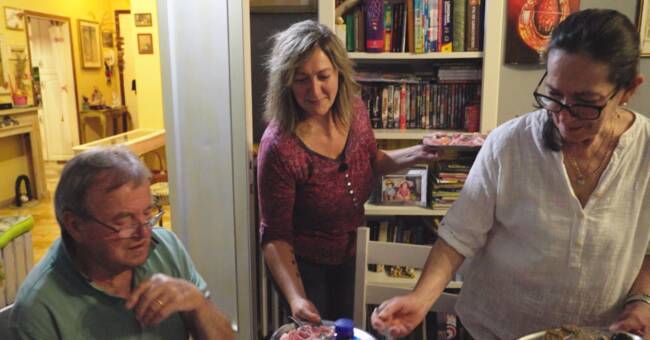They are called "mammoni", mother pigs.
The Italians who stay at home - and they are in the majority.
Two out of three between the ages of 17 and 34 still live in the childhood home with at least one parent.
We are northerners in Europe at the earliest when leaving the parental home.
The exact opposite, then.
Men remain the longest
However, one pattern is common to the whole of Europe: it is the men who live at home the longest.
That others fill the fridge, wash one's clothes and cook the food can of course be nice, but it often comes at the price of lack of freedom and parents who put themselves in one's life.
I do not know how many of my Italian friends have sighed that their husbands are completely stuck in "La Mamma's" grip until they move and often even after that.
Of course, love life can also be a little difficult to maneuver when you sleep at home in your girl's or boys' room with parents and maybe even siblings in the rooms next door.
Having sex in cars, even a small Fiat 500, is therefore an art that most Italians master superbly, distress is known to have no law.
Economy, culture and tradition
Ekonomiska skäl finns bland orsakerna till att många blir kvar hemma, de har inte något val. Men också tradition och kultur spelar in. På samma sätt som vi i Sverige tycker att det är självklart att flytta och skapa oss ett eget hem är det naturliga för många italienare att bo kvar hemma tills man gifter sig – och ibland även efter det. Man skräms av tanken på vår ensamhet och förstår inte varför vi väljer den, här värderas gemenskap högre än frihet. Lika svårt som det är för oss att tänka sig en hemmaboende 40-åring lika hjärtlöst obegripligt tycker många italienska föräldrar tanken på att låta en 18-åring flytta hemifrån är.
"Why would I move and live alone instead of living at home with my family?"
Cristiana Moretti sets the table for tonight's dinner at the parents' home in Florence.
"I love having my children here," says mother Patrizia, kissing her 47-year-old daughter, who lives at home, on the cheek.
Both talk about the importance of the family, how to help each other, about how they shun loneliness.
Cristiana places the pasta on the dining table in the living room, an international football match will soon be shown.
The family sits at the table, all generations together, from the TV is heard the Italian national anthem.

